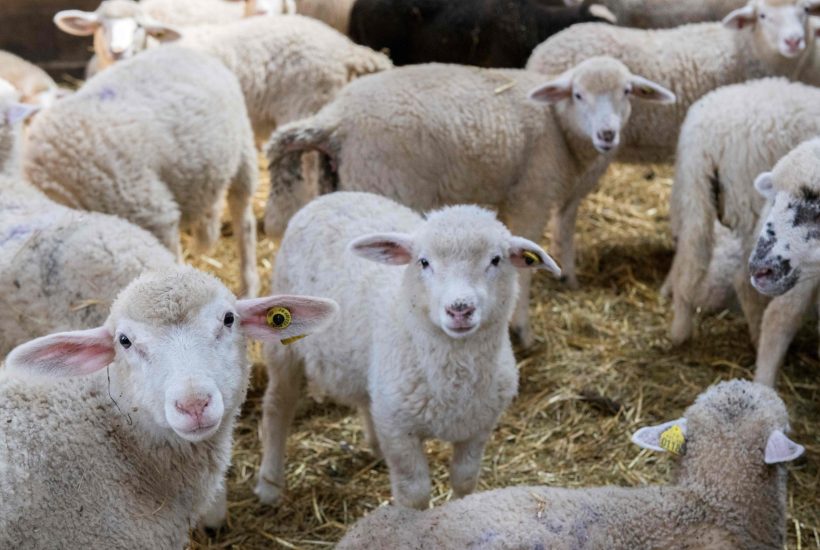Easter is heavily associated with lamb. The paschal lamb’s sacrifice is a gift to all but that is not the only link, the last few weeks of lent also mark the beginning of the spring lambing season in agricultural communities.
This has fed through in recent decades to the consumer. Last weekend, while the churches stand empty and a great many of us are separated from our family, millions of us nonetheless sat down to a meal of lamb.
If you live in Britain though, this is actually quite an odd phenomenon when you think about it. Lambis not really in season. New season lamb has only just been born. If you’re tucking into British lamb today, as superb as the quality is (and it really is great), then it’ll most likely either have been long-frozen or born indoors in January.
Really, in season lamb, in the quantities required on the level to be eaten by everyone requires lamb to be shipped in from countries like New Zealand.
This trade makes us all better off.
We take these things for granted so often in our lives. But free trade saves lives. Not just in medical goods, although that’s very important too right now. But more simply in food.
You see, we’re in the so-called ‘hungry gap’ right now in British food production – right between the winter root vegetables and the beginning of the field growth of the summer. Some of our countrymen would quite literally starve without food coming in from overseas at this time. We in fact grow around 60 per cent of the value of what we eat and drink. When we account for what we export, we grow just over half our own food.
This is a good thing, of course. Many of us do not want to be in fields for the whole of our lives, we produce far more value in normal times through being bankers or accountants or advertising executives — even think-tankers.
Imports and exports mean we can specialise, as Adam Smith himself put it:
By means of glasses, hotbeds, and hotwalls, very good grapes canbe raised in Scotland, and very good wine too can be made of them at about thirty times the expense for which at least equally good can be brought from foreign countries.
Wesave money, we have access to more choice, variety, and also build resilience. Diverse sources of imports are a key part of food security. Imports mean that even though a great many of us are locked away in our houses we’re still able to bring in food to ensure that the empty shelves we saw at the beginning of the coronavirus crisis were short-lived.
That’s it’s worrying when we see moves to curtail this security, reduce our choice, and make us all poorer. In this case, that threat isn’t viral, but human. Amendments to the Agriculture Bill that has begun its journey through parliament, made by MPs wrapping themselves in the British flag, threaten the welfare of us all. Legislative scrutiny is important, but it also allows for spurious amendments to be made that can be quite ill-thought through and have disastrous consequences if applied.
Takeoneamendment by Simon Hoare MP, it would kill all imports not produced under British standards. What does that mean in practice? Well, it means that we’d be saying no to goods from the EU, from anywhere else in the world, unless they suddenly adopted British laws. It would mean an effective end to any free trade agreement with the EU, US, Australia, indeed anywhere.
To protect consumers we need to keep our supply lines as open as possible. For producers, the best protection right now is to have as many open markets as possible too.
We should remember that one of the benefits of Brexit was the ability to strike new deals with our friends and partners around the world. To open up new markets and make us all better off. Not shut down trade and shut up shop. At the Adam Smith Institute, we’ll be keeping an eye on this Bill’sprogression because it is too important to be left to lobbyists that want to curtail competition or nationalists who cheer on our impoverishment.
So this Easter, as we tuck into food from near and from far, let us remember it is not a miracle that keeps us fed, but the actions of many butchers, brewers and bakers all acting in their own self-interest. Give them the opportunities to do that, while giving us the opportunities to keep them honest, and we all find ourselves raised up.
Got something to add? Join the discussion and comment below.
Get 10 issues for just $10
Subscribe to The Spectator Australia today for the next 10 magazine issues, plus full online access, for just $10.




















Comments
Don't miss out
Join the conversation with other Spectator Australia readers. Subscribe to leave a comment.
SUBSCRIBEAlready a subscriber? Log in